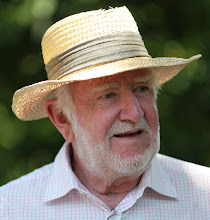The wassail
in Warsaw ended yesterday. As TS Eliot might
have said:
This is the way the sea owe pea ends
This is the way the sea owe pea ends
This is the way the sea owe pea ends
Not with a bang but a whimper.
As the
thousands jetted their way home, they must have wondered how this came to pass. The rich had issued a clarion call – “Wake
up! We face doom! We face destruction! The seas are arising, the storms are
worsening, the globe will soon fry! We must stop this pollution. Sea owe two is
bad for me and you.” The poor heard this nonsense, and pointed their fingers. “If
that is true, it must be YOU! Now PAY!”
In vain did
the rich argue “But it is a global problem.
We are all in this together.” They even cobbled together a meaningless phrase, “common but differentiated responsibility”, to try to
justify their claim that, while they had emitted great gobs of sea owe two, the
poor must share the burden of trying to cut the world’s reliance on fossil
fuels.
Now they are landed with costs for which they hadn’t budgeted. Douglas
Carswell, Tory MP for Clacton, summed it up:
“We’re
spending money that we don’t have to solve a problem that doesn’t exist at the
behest of people we didn’t elect.”
What I have
difficulty in understanding is how supposedly sentient politicians didn’t
think, when they signed up to the global warming boondoggle, that because they
had contributed most to the perceived problem, they would be asked to
contribute most to the putative solution. Were they blind, blind drunk, or
merely blinded by what they saw as a lifetime opportunity to claim that they
were about to save the world?
Now the
flights of fantasy are coming home. Reality is beginning to bite, and the teeth
are sharp indeed. If sea owe two is a pollutant, then everyone pollutes with
every passing breath. So of course it is not a pollutant, unless the word is to
be redefined in some as yet mysterious way.
Meanwhile
the global warming hypothesis is looking decidedly tatty. The world steadfastly
refuses to warm in the face of ever-growing sea owe two. The plants are doing
just fine, the deserts are greening, and flimsy homes are collapsing under the
onslaught of strong winds just as they have always done.
In the
latest emanation from the Eye Pea Sea Sea, many scientists tried to warn the
politicians that much of the observable warming was natural. Would they listen? Of course not! They spun the message to say they were being
told that sea owe two was the dominant cause of global warming.
In days
gone by, rulers would shoot the messengers of bad news. Now they put a spin on
the message, and hope that it will go away.
In this case, it won’t. Did they really not see it coming?

